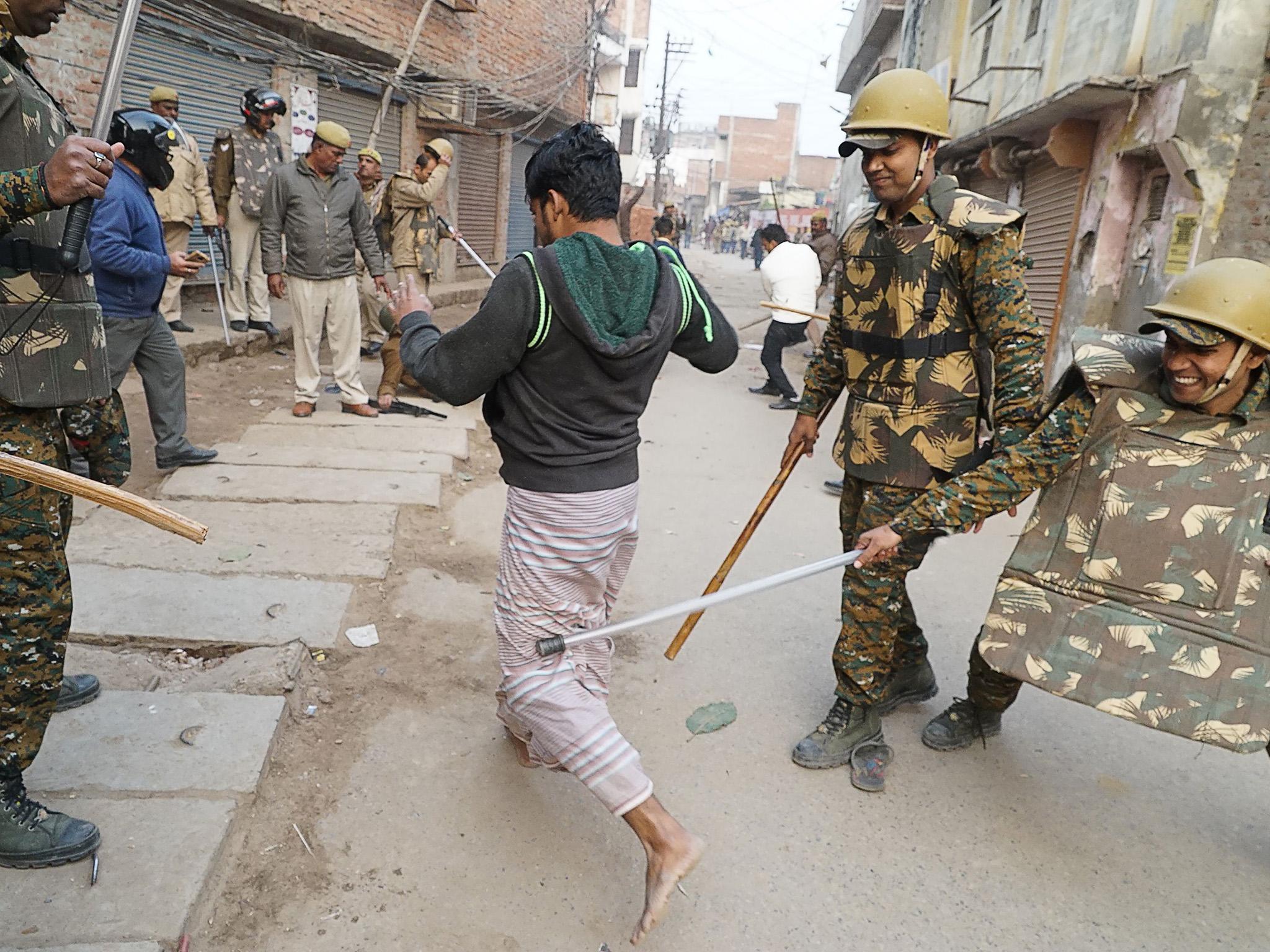Indian prime minister Modi defends citizenship law as protest death toll reaches 23
'If you see any trace of divisiveness in my work, show it to the world' says nation's leader as demonstrations rage against law that shuts out Muslim refugees

Your support helps us to tell the story
From reproductive rights to climate change to Big Tech, The Independent is on the ground when the story is developing. Whether it's investigating the financials of Elon Musk's pro-Trump PAC or producing our latest documentary, 'The A Word', which shines a light on the American women fighting for reproductive rights, we know how important it is to parse out the facts from the messaging.
At such a critical moment in US history, we need reporters on the ground. Your donation allows us to keep sending journalists to speak to both sides of the story.
The Independent is trusted by Americans across the entire political spectrum. And unlike many other quality news outlets, we choose not to lock Americans out of our reporting and analysis with paywalls. We believe quality journalism should be available to everyone, paid for by those who can afford it.
Your support makes all the difference.Protesters angered by India's new citizenship law that excludes Muslims have defied a ban against demonstrations, as prime minister Narendra Modi defended the legislation.
Twenty-three people have been killed nationwide since the law was passed in parliament earlier this month in protests that represent the first major roadblock for Mr Modi's Hindu nationalist agenda since his party's landslide re-election last spring.
Most of the deaths have occurred in the northern state of Uttar Pradesh, where 20 per cent of the state's 200 million people are Muslim.
Police, who deny any wrongdoing, said that among the 15 people killed in the state was an eight-year-old boy who died in a stampede in the city of Varanasi, the heart of Mr Modi's parliamentary constituency.
Since last week, police in Uttar Pradesh have taken nearly 900 people into custody for engaging in violence.
Authorities across the country have scrambled to contain the situation, banning public gatherings under Section 144, a British colonial-era law, and blocking internet access.
India's Ministry of Information and Broadcasting issued an advisory on Friday night asking broadcasters across the country to refrain from using content that could inflame further violence.
A group of politicians from the opposition Trinamool Congress party who travelled to Uttar Pradesh on Sunday to meet with families of those killed in the violence were not permitted to leave the airport runway, police said.
“We will not permit them because Section 144 is imposed in the area and it can make the atmosphere more tense,” said Uttar Pradesh's police chief, OP Singh.
In the southern state of Tamil Nadu, about 500 Muslim and leftist activists protested, defying a ban on public gatherings there.
Meanwhile, Mr Modi took the stage at a rally in the capital launching his Bharatiya Janata Party's campaign for New Delhi legislative assembly elections in February, and quickly turned to the contentious new law.
“People who are trying to spread lies and fear, look at my work. If you see any trace of divisiveness in my work, show it to the world,” he said.
Mr Modi accused the main opposition Congress party of conspiring to “push not only New Delhi but other parts of the country into a fear psychosis”.
“They are trying every tactic to push me out of power,” he said, urging protesters to desist from attacks on police and other violence.
The new law allows Hindus, Christians and other religious minorities who are in India illegally to become citizens if they can show they were persecuted because of their religion in Muslim-majority Bangladesh, Pakistan and Afghanistan. It does not apply to Muslims.
Critics have slammed the legislation as a violation of India's secular constitution and have called it the latest effort by Mr Modi's government to marginalise the country's 200 million Muslims.
Associated Press
Join our commenting forum
Join thought-provoking conversations, follow other Independent readers and see their replies
Comments